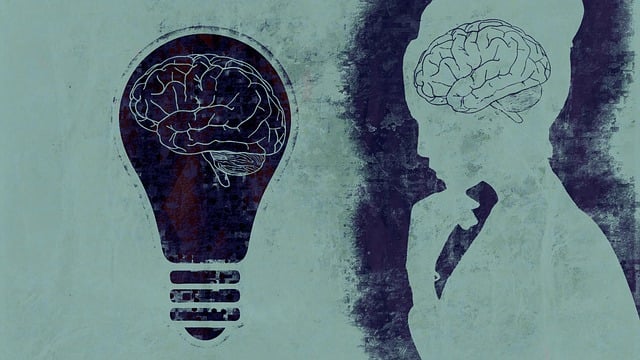Mental health advocacy initiatives led by Englewood Geriatrics Therapy aim to support individuals facing challenges through events like podcasts and workshops, raising awareness, reducing stigma, and ensuring access to quality care. By promoting mental wellness as part of overall health, these efforts prevent burnout and foster early interventions leading to improved outcomes. Through tailored programs, the therapy center empowers community members to recognize and manage mental health issues, revolutionizing mental healthcare accessibility for a healthier, more resilient community, especially among older adults. Englewood Geriatrics Therapy measures initiative impact using assessment tools to track KPIs like attendance rates and participation in therapeutic activities.
Mental health advocacy initiatives play a pivotal role in fostering well-being and support within communities. This article explores the essence of mental health advocacy, highlighting the impactful work done by organizations like Englewood Geriatrics Therapy. We delve into effective strategies for these initiatives, offering guidance on engagement, education, and policy changes. Additionally, we discuss measurement techniques to evaluate program success, ensuring resources are allocated where they matter most.
- Understanding Mental Health Advocacy: A Cornerstone of Support
- The Role of Englewood Geriatrics Therapy in Community Outreach
- Strategies for Effective Mental Health Advocacy Initiatives
- Measuring Impact: Evaluating the Success of Advocacy Programs
Understanding Mental Health Advocacy: A Cornerstone of Support

Mental health advocacy initiatives are a cornerstone of support for individuals facing various mental health challenges. These efforts aim to raise awareness, reduce stigma, and ensure access to quality care. By advocating for better understanding and acceptance, communities can create an environment where everyone feels empowered to seek help. Englewood Geriatrics Therapy, for instance, has been at the forefront of such initiatives, organizing events like the Mental Wellness Podcast Series Production and Stress Management Workshops Organization to engage and educate diverse audiences.
Through these advocacy efforts, organizations play a crucial role in burnout prevention by promoting mental wellness as an integral part of overall health. They provide resources, share stories of resilience, and foster open conversations that can lead to early interventions and improved outcomes. Such initiatives are vital in ensuring that no one faces mental health struggles alone, ultimately leading to a more supportive and inclusive society.
The Role of Englewood Geriatrics Therapy in Community Outreach

Englewood Geriatrics Therapy plays a pivotal role in community outreach, addressing mental health challenges among older adults. Through their dedicated programs and services, they foster resilience building within vulnerable populations, focusing on enhancing mental wellness. By integrating innovative approaches, the therapy center offers tailored solutions that cater to diverse needs.
The initiative’s success lies in its commitment to developing mental wellness coaching programs that empower individuals. These programs not only provide support but also educate community members on recognizing and managing mental health issues. Through collaborative efforts, Englewood Geriatrics Therapy is revolutionizing mental healthcare accessibility, ensuring a healthier and more resilient community for all.
Strategies for Effective Mental Health Advocacy Initiatives

Englewood Geriatrics Therapy understands that effective mental health advocacy initiatives require a multifaceted approach to challenge and reduce the stigma surrounding mental illness. One key strategy is leveraging education and awareness campaigns, which can include public talks, workshops, and social media engagement, to foster understanding and empathy among the community. These efforts aim to dispel misconceptions about mental health conditions, normalizing conversations around them.
Additionally, initiatives should focus on providing trauma support services tailored for different demographics, recognizing that mental illness often arises from traumatic experiences. Integrating stress management workshops into these programs empowers individuals with coping mechanisms, encouraging proactive self-care. By combining education, community engagement, and targeted interventions like those offered by Englewood Geriatrics Therapy, Mental Illness Stigma Reduction Efforts can be effective in promoting a healthier, more supportive society for everyone, including the elderly population.
Measuring Impact: Evaluating the Success of Advocacy Programs
Measuring the impact of mental health advocacy initiatives is a crucial step in understanding their effectiveness and identifying areas for improvement. Organizations like Englewood Geriatrics Therapy play a vital role in evaluating the success of their programs by employing various assessment tools tailored to specific goals. This involves tracking key performance indicators (KPIs) related to engagement, such as attendance rates at support groups or participation in therapeutic activities.
By comparing these metrics against established benchmarks and baseline data, advocacy programs can demonstrate tangible outcomes. For instance, a decrease in symptoms of depression among participants could be attributed to successful Depression Prevention initiatives. Additionally, encouraging self-care practices, as evidenced by increased submission of Mental Wellness Journaling Exercises, or higher rates of adherence to guidance on Self-Care Practices, further validates the program’s success. Such evaluations enable organizations to refine their strategies and ensure resources are allocated effectively to meet the evolving needs of their clientele.
Mental health advocacy initiatives, such as those demonstrated by Englewood Geriatrics Therapy, play a pivotal role in fostering community support and improving access to care. By implementing effective strategies and measuring impact, these programs can revolutionize mental health landscapes, ensuring that individuals receive the support they need. Through sustained efforts and collaboration, we can create a more inclusive and understanding society, where mental well-being is prioritized and celebrated.








